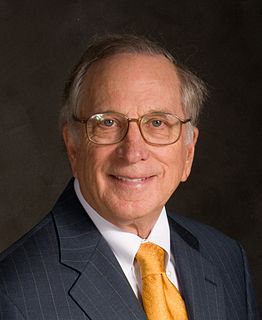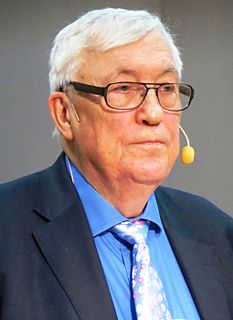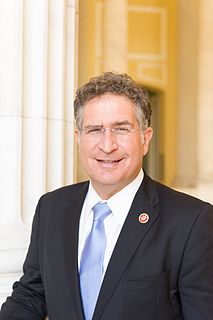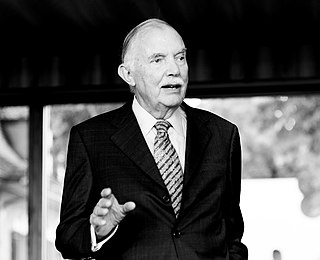Ein Zitat von Sam Nunn
Es herrscht ein allgegenwärtiges Misstrauen, das aus dem Kalten Krieg hervorgegangen ist und bis heute anhält – obwohl es zwischen Europa, Russland und den Vereinigten Staaten viel mehr gegenseitige Interessen gibt als je zuvor. Aber so wie wir die Dinge heute organisieren, dauert es Jahre, um zu verhandeln. Bis Sie ein Ergebnis erhalten, ist die Technologie der Richtlinie weit voraus. Deshalb müssen wir eine dynamische, nachhaltige Art politischer Überlegungen anstoßen, die mit der Technologie Schritt halten kann.
Themen zitieren
Vorher
Zwischen
Bis
zur Zeit
Fang
Kalt
Kalter Krieg
Dynamisches
Europa
Immer
weiter
Werden
Wachsende
Interessen
Viel
Misstrauen
Mehr
Gegenseitiges
Gegenseitiges Interesse
Verhandeln
Organisieren
Raus
Entkommen
Durchdringende
Politik
Ergebnis
Russland
Start
Staaten
Noch
Nachhaltig
Nimmt
Technologie
Als
Dinge
Obwohl
Zeit
Heute
Typ
Vereinigte
Staaten
Auf
Krieg Weg Jahre
Verwandte Zitate
Tatsächlich haben wir unsere außenpolitischen Verpflichtungen seit dem Ende des Kalten Krieges nie wirklich neu kalibriert. Wir haben immer noch Allianzen in ganz Asien und ganz Europa, die darauf abzielten, die Sowjetunion zu zähmen, die, als ich das letzte Mal nachgeschaut habe, vor mehr als 20 Jahren aufgehört hat zu existieren. Heute sind wir natürlich verpflichtet, einen Atomkrieg mit Russland zu führen, falls Russland in Lettland einmarschiert. Für mich ist das völliger Unsinn. In jeder Region der Welt sollte unsere Haltung überdacht werden.
Ich denke, das ist eigentlich das, was der Regierung größtenteils fehlt. Wir haben viele Politiker, aber wir haben keine Techniker, obwohl Technologie einen so großen Teil unseres Lebens ausmacht. Es ist einfach erstaunlich, denn selbst diese großen Unternehmen aus dem Silicon Valley, die Herren des Universums oder was auch immer, haben sich bis vor Kurzem nicht mit Washington beschäftigt. Sie sind immer noch dabei, aufzuholen.
Ich denke, die beste und vielleicht einzig vernünftige Politik für die Zukunft besteht darin, die Gesellschaft auf Veränderungen vorzubereiten und bereit zu sein, sich anzupassen. In 25 Jahren werden wir eine Welt mit etwa 9 bis 10 Milliarden Menschen haben, die doppelt so viel Primärenergie benötigen wird wie heute. Wir müssen neue Wissenschaft und Technologie positiver annehmen, als wir es derzeit in Europa tun. Dazu gehören beispielsweise Kernenergie und genetische Nahrungsmittelproduktion, um die Welt mit dem zu versorgen, was sie dringend braucht.
Außenpolitik hat immer dann mehr Kraft und Durchschlagskraft, wenn die Nation mit einer Stimme spricht. Um sicher, wohlhabend und frei zu bleiben, müssen die Vereinigten Staaten weiterhin die Führung übernehmen. Diese Führung erfordert, dass ein Präsident und ein Kongress zusammenarbeiten, um eine Außenpolitik mit breiter, überparteilicher Unterstützung zu gestalten. Eine Außenpolitik der Einheit ist unerlässlich, wenn die Vereinigten Staaten ihre Werte und Interessen effektiv fördern und zum Aufbau einer sichereren, freieren und wohlhabenderen Welt beitragen wollen.
Ich habe mit Gerhard Schröder über viele Dinge gesprochen, auch über Außenpolitik. Schröder weiß, wie wichtig mir persönlich Europapolitik ist. Ich arbeite seit vielen Jahren mit Angela Merkel in der Europapolitik zusammen und war daher überrascht, als Volker Kauder, der wenig Erfahrung in der Europapolitik hat, behauptete, ich hätte die deutschen Interessen in Europa nicht vertreten. Das ist ein Beispiel dafür, wie die Konservativen einen Wahlkampf führen.
Unterdessen bleiben die US-Schulden, wie schon seit 1790, Kriegsschulden; Die Vereinigten Staaten geben weiterhin mehr für ihr Militär aus als alle anderen Nationen der Erde zusammen, und Militärausgaben sind nicht nur die Grundlage der Industriepolitik der Regierung; Außerdem machen sie einen so großen Teil des Haushalts aus, dass die Vereinigten Staaten nach vielen Schätzungen ohne sie überhaupt kein Defizit aufweisen würden.
So wie Atomstrategen des Kalten Krieges darüber streiten könnten, einen Atomkrieg zu gewinnen, indem man mehr Überlebende hat, könnten Befürworter eines Krieges gegen die globale Erwärmung die Vereinigten Staaten, Westeuropa oder Russland als besser in der Lage sehen, Klimastörungen und -manipulationen zu überstehen als beispielsweise China oder die Länder des Nahen Ostens.
Während politische und kulturelle Faktoren wichtige Erklärungen für Unterschiede in der nationalen Technologiepolitik und Industriepraxis sind, führen aufkommende Trends in Wissenschaft, Technik und Management sowohl in Japan als auch in den Vereinigten Staaten zu neuen Paradigmen für Hochtechnologieinnovationen.
Ich liebe Städte und insbesondere Stadtverwaltungen. Aber in der Politik hätte es von der Umsetzung einer Politik acht Jahre gedauert, bis ich das Feedback gesehen hätte. Mit der Programmierung konnte ich dieselben Richtlinien modellieren und die Auswirkungen sofort erkennen. Technologie ist eine weitaus effizientere Methode zum Testen.


































